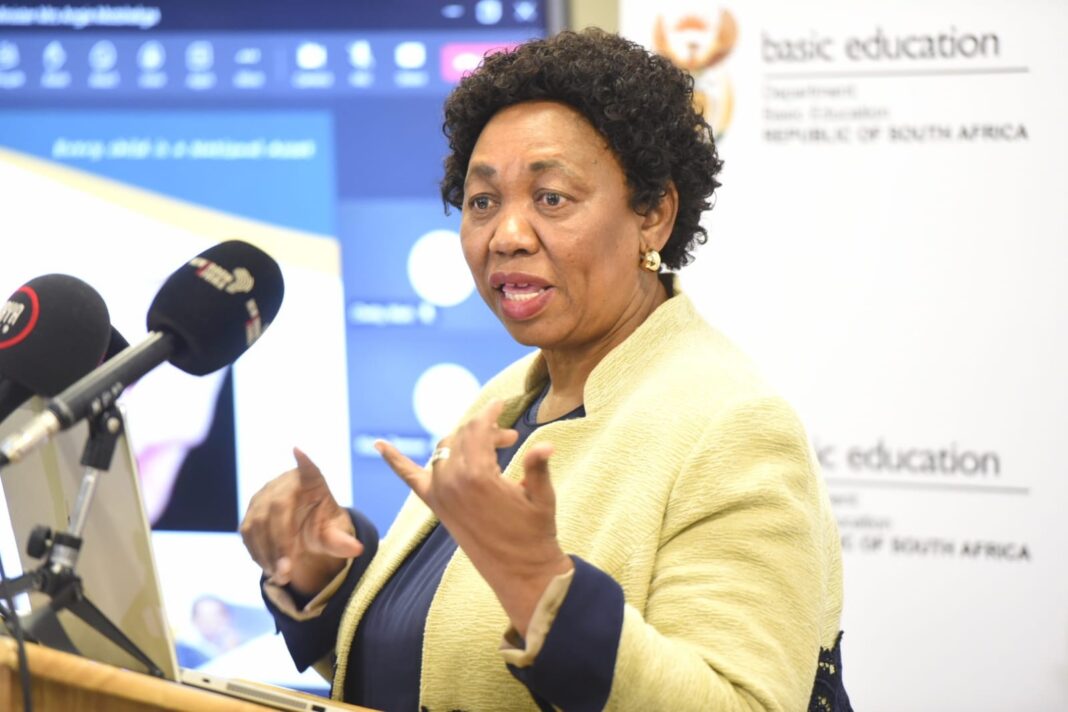EDWIN NAIDU
THE Department of Basic Education is implementing the Presidential Youth Employment Initiative to tackle unemployment among youth in South Africa.
Now in its fourth phase, the Basic Education Employment Initiative (BEEI) seeks to give effect to the objectives of the PYEI, which is South Africa’s most comprehensive response to addressing rampant youth unemployment.
Phase IV will see 255 000 young people appointed in ordinary public schools and schools for learners with special education needs across the country, said Basic Education Minister Angie Motshekga in Pretoria at the weekend.
“We also have a responsibility to create employment opportunities, particularly for the youth who are neither in employment, education, nor training,” said Motshekga.
Providing an assessment of Early Childhood Development since the DBE assumed responsibility for its function from Social Development a year ago, Motshekga said much work had been taken forward over the last 12 months, and not all of it is visible outside government.
She said the government was committed to elevating the early years as the foundation of all education and learning and injecting momentum into the government’s commitment to delivering access and quality for every child.
Motshekga said that during the function shift process, the DBE listened carefully to the ECD sector to learn about the challenges faced on the ground and to make sure that its priorities became the government’s focus.
A key priority has been to ensure that government takes standardised approaches to help ECD programmes become registered and access the ECD subsidy. “We have also prioritised training on the National Curriculum Framework and developing a plan for workforce development – which are key planks in our strategy to build quality.”
Referring to government efforts to give youth a hand up, Motshekga said the Second Chance Matric examinations are written mainly to give those young people who seek a second opportunity to improve their marks or rewrite.
These young people recognise that a matric certificate is essential in their lives. More than 279,000 candidates enrolled for the May/June examinations.
The examinations started on 3 May 2023 and concluded this week on June 14. Marking starts this coming week on June 21, and the results will be released on August 7 2023.
The public hearings on the Basic Education Laws Amendment Bill have been concluded. The Portfolio Committee on Basic Education led the public hearings, which began in March this year.
On the Basic Education Laws Amendment Bill (BELA) Bill which seeks to amend certain sections of the South African Schools Act of 1986 to respond to administrative challenges facing schools and continues transforming the education system, Motshekga said it was not a wholesale Bill that covers all aspects of the sector, focusing mainly on the administrative processes of the department and schools.
“It is a Bill that responds to the current needs in terms of the changing demographics of our communities, findings by the courts and our observations as we monitor schools,” she said.
The Bill has 56 clauses ranging from the introduction of Grade R to learner attendance, Code of Conduct for learners, Home Schooling, rationalisation of schools, abolishment of corporal punishment and initiations, language policy, admission policy, and the criminalisation of school disruptions.
“It is concerning to note that some members of the public are debating the content of the Bill along racial and political lines. We urge members of the public to engage more meaningfully and constructively on this matter,” she added.
INSIDE EDUCATION







